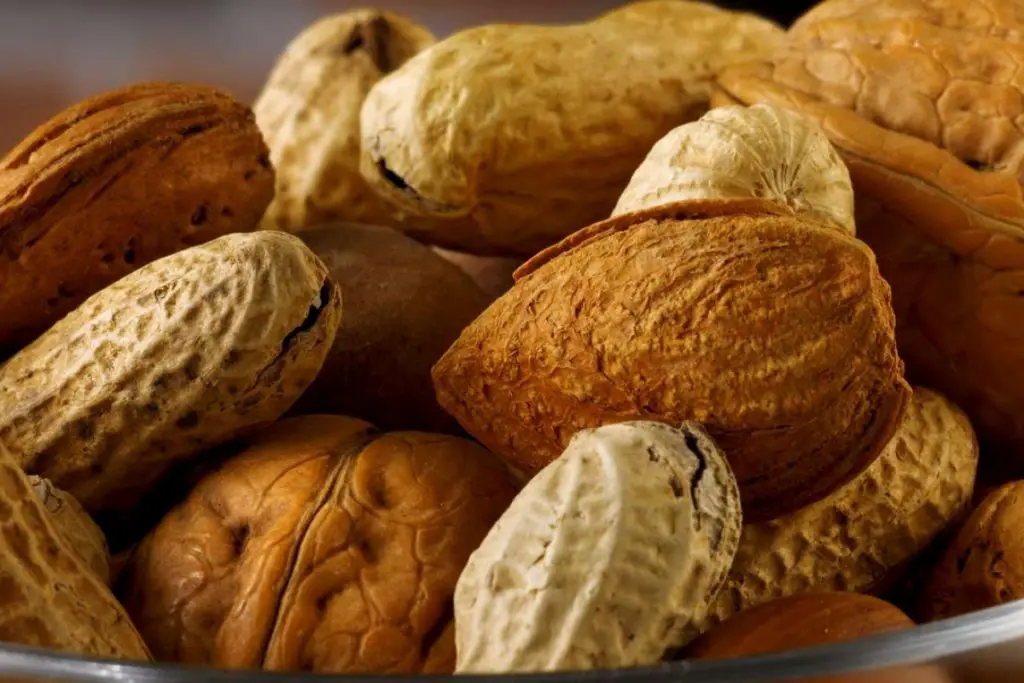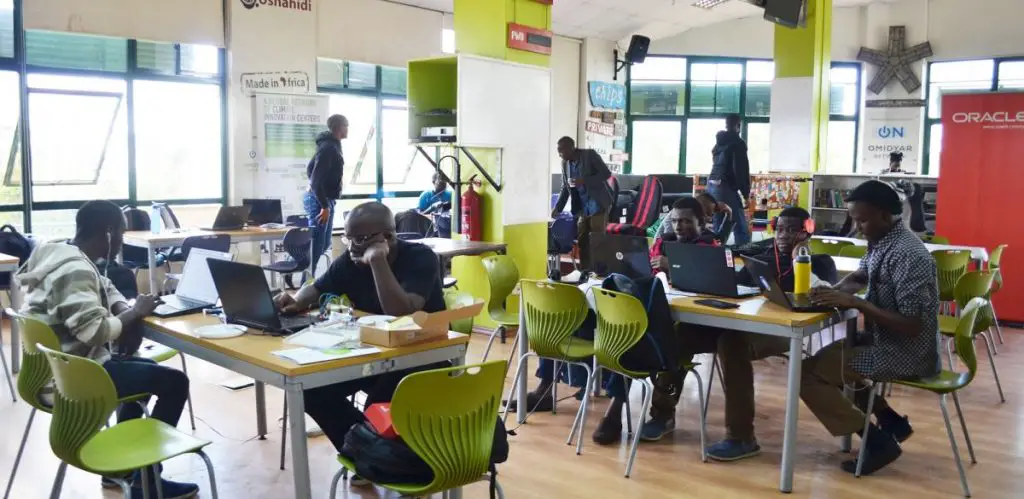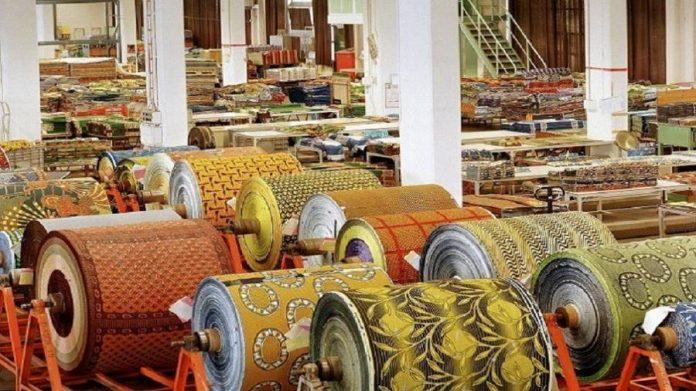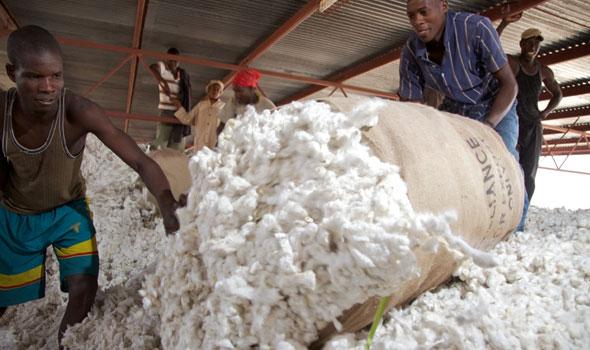- IMF’s Sub-Saharan Africa economic forecast shows 1.2 percent GDP growth
- The US Congress proposes extending Agoa to 2041, covering all African countries
- Millions at risk of famine as fuel tax row halts UN aid operations in South Sudan
- Empowering the Future: Humanity Protocol’s Dream Play Initiative
- TikTok Community Guidelines update aims to curb hate speech and misinformation
- Rwanda sees 39% surge in bank borrowers as Sacco and MFI loan uptake declines
- Kenya Ports Authority wins dispute case over cargo release
- Why Africa can reap billions from digital economy
Browsing: Nigeria
Nigeria exempts food from Value Added Tax (VAT) as it increases the tax to 7.5 per cent as it seeks to alleviate the cost burden from consumers.
The Value-added tax will be effective from February 1, 2020, the exception of bread, cereals, cooking oils, culinary herbs, fish, flour and starch, fruits, meat and poultry. Others are milk, nuts, pulses, vegetables, natural water, roots, salt, table water and sanitary towels.
On January 13, 2020, Nigeria’s President Muhammadu Buhari signed into law the 2019 Finance Bill, increasing VAT and also exempted companies with less than $82,000 capital from paying tax.
Also Read:Nigeria takes on revenue boost and small business support for the economy
According to PWC (a global network of tax consulting form), 48 per cent of national GDP is contributed by SME’s in Nigeria, account for 96 per cent of businesses and 84 per cent of employment.
The Senior Special …
OPay, one of the fastest scaling growth companies in Africa, has announced that it raised $120 million of series B funding, less than 6 months after it announced its last funding round of $50 million in June.
The company, which was incubated by Norwegian based, global consumer Internet company Opera, is already Nigeria’s leading mobile wallet and motorbike ridesharing provider, and is rapidly expanding.
Series B investors included Meituan-Dianping, DragonBall Capital (The Investment fund backed by Meituan-Dianping), GaoRong Capital, Source Code Capital, SoftBank Ventures Asia, Bertelsmann Asia Investments (BAI), Redpoint China, IDG Capital, Sequoia Capital China and GSR Ventures.
OPay is one of the fastest growing companies in Nigeria, providing consumers with a wide range of services including mobile payments and transfers, ridesharing and food delivery. The company plans to use the new capital to further accelerate its expansion across its multiple verticals, as well as entering new African markets.…
Nigeria’s high food prices pushed annual inflation last month after borders with neighbouring countries were closed in a crackdown on smuggling.
In August, Nigeria closed parts of its borders to fight smuggling of rice and other goods.
The head of customs confirmed last month that all trade in goods through land borders had been halted indefinitely.
On Monday the National Bureau of Statistics said, Nigeria’s annual inflation was 11.61% in October a rise from 11.24% in September, noting that it is the highest rate since May 2018.
A separate food price index showed inflation at 14.09% in October, compared with 13.51% September.
“This rise in the food index was caused by increases in prices of meat, oils and fats, bread and cereals, potatoes, ham and other tubers, fish and vegetables,” said the statistics office in its report.
The chief economist for Africa and the Middle East at Standard Chartered, Razia …
Nigeria’s largest retail lender Access Bank acquired Kenya’s Transnational Bank starting its plans to open shop in all major Eastern Africa markets.
The bank is in the process of acquiring 93.57 per cent shareholding in Kenya’s private owned Transnational Bank at an undisclosed fee as its further eyes Tanzania and Uganda.
The Kenyan acquisition is expected to be concluded in the next 30 to 60 days as it awaits regulatory approvals.
The bank said it was seeking to expand in the region through acquisitions and setting up greenfield operations so as to deepen competition for customers with local rivals.
The lender said it had drawn a five-year plan from 2018-2022 which seeks to raise its retail and wholesale banking business and position itself as the world’s most respected African bank.
Access Bank controls over $13 billion worth of assets and over 27 million customers. In its plan to track record …
Nigeria’s technology Co-creation Hub (CcHUB), has taken total ownership of Kenya’s iHub for an undisclosed fee. The deal will see iHub’s team become part of CcHUB’s wider central support and strategy network, whilst retaining its name and senior management structure.
This is the second change of ownership for iHub which was in 2017 acquired by venture capital firm BSP Fund LLC.
An industry first for the African tech hub community, the acquisition of East Africa’s most prolific and reputable technology centre is the next step for CcHUB as it continues its mission to connect entrepreneurs, technologists and public bodies across the continent.
The move comes just seven months after CcHUB expanded into Kigali, Rwanda, with the launch of its Design Lab – the first creative space in Africa to focus solely on product design and technology innovation.
iHub, launched in 2010, is home to internationally-recognized companies such as BRCK and …
According to the global technology research and consulting firm’s newly released Quarterly Mobile Phone Tracker, overall shipments for the quarter totalled 52.2 million units, down from 53.1 million units in Q1 2019. Feature phones accounted for 58.3% of the market, with shipments declining 3.7% QoQ, while smartphone shipments increased 1.0% over the same period to account for 41.7% share.
“Feature phones remain an integral part of the African mobile phone market due to poor network infrastructure across large parts of the continent, particularly in rural areas, and the ease of use of these devices,” says George Mbuthia, a research analyst at IDC. “However, the transition to smartphones is continuing, albeit slowly, and the affordability of feature phones alone was not enough to stop this segment of the market declining in Q2 2019. Smartphones, on the other hand, enjoyed a recovery from the decline in shipments seen in Q1 2019.”
Nigeria …
An Austrian company Technik-Plus has developed a cutting-edge Carbon Farming-technology in their Impuls-Centre in Mureck, Southern Austria, for sustainable and gently mechanized farming with a strong commitment to conservation and environmental sustainability and a special focus on African agriculture.
The company has been making inroads in several countries in Africa with significant sales in South Africa, Uganda, Gambia and Morocco. They are in talks with farmer’s organizations in Kenya and Nigeria with a targeted niche in semi-arid agriculture in many African nations.
The Austrian company says it has sales contacts in all 55 African countries and is looking at possibly developing local license assembly in specific countries for their tractors, which is expected to create local jobs and makes it a 50% African product.
Beside their pneumatic air seeders, the company also construct “exhaust-farming” systems, which means, they blow the carbon emissions of the tractor’s exhaust pipe back into the …
Hawassa Industrial park sits 140 miles south of Addis Ababa. The park was built by China Civil Engineering Corporation in 2016 and has so far attracted several international companies. The park is part of a long-term vision to grow Ethiopia into a production hub. It houses factories including textile and agro-processing and has 25,000 employees producing garments.
In the last 5 to 6 years, the textile, and apparel industry have grown at an average of 51% and more than 65 international textile investment projects have been licensed for foreign investors, during this period.
According to the World Investment Report, Ethiopia is one of the top-performing African countries in FDI flow, especially in the textile sector. The government of Ethiopia believes that textile would help the nation to join middle-income status in 2025. As the way forward, the Ethiopian government has been building industrial parks at different cities of the country …
Sub-Saharan African clothing and footwear market is worth $31 billion US dollars and growing. In a series of articles about the industry in Sub Sahara Africa, we will explore the policies, trade and the budding creative fashion industry in the region. This is the second part of the series where we focus on the raw material for the textile industry.
Read the first of our series: Africa Fashionomics: Making sense of the $31 Billion industry
Kenya has taken years to review and establish a commercially viable production of a variety of cotton laced with foreign genes from the naturally occurring bacterium Bacillus thurigensis. By the start of the year, the government announced it was ready to go full commercial in production of this variety to push the availability of raw materials.
It is highly expected that adoption and commercialization of Bt cotton will revitalize the textile industry and by extension …
Allied Wallet Africa, a global FinTech company offering various payment solutions in 196 countries, recently announced a new office in Angola, to support the growing opportunities for African entrepreneurs and business owners.
Millions of people are eager to engage in online commerce but lack proper support and functionality. South Africa has the largest e-commerce market in the continent with Nigeria and Kenya following closely, and people of the region are eager to trade and transact in the new digital space.
“Africa deserves the opportunity to participate in e-commerce, they deserve advancement,” said Allied Wallet Africa CEO Andy Khawaja, “We are happy to be chosen for this opportunity. We are dedicated to helping these entrepreneurs and creating new opportunities in the region.”
Allied Wallet Africa will bring new, ‘open API’ online payment solutions along with mobile payment options, digital wallet solutions, and even solutions catered to utility and payroll functions. …














